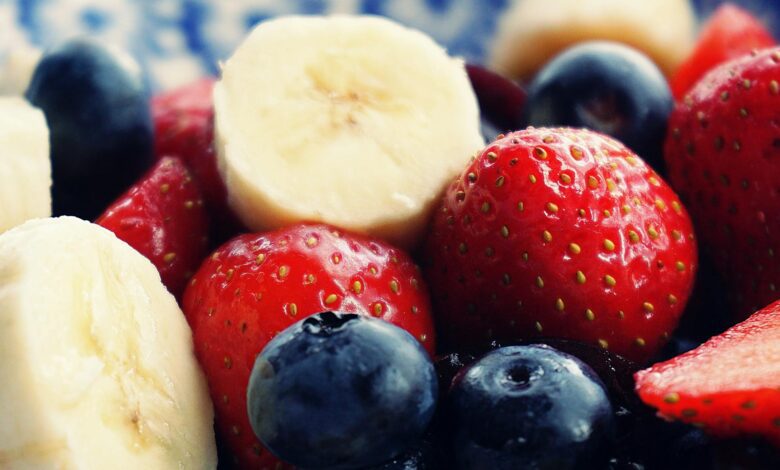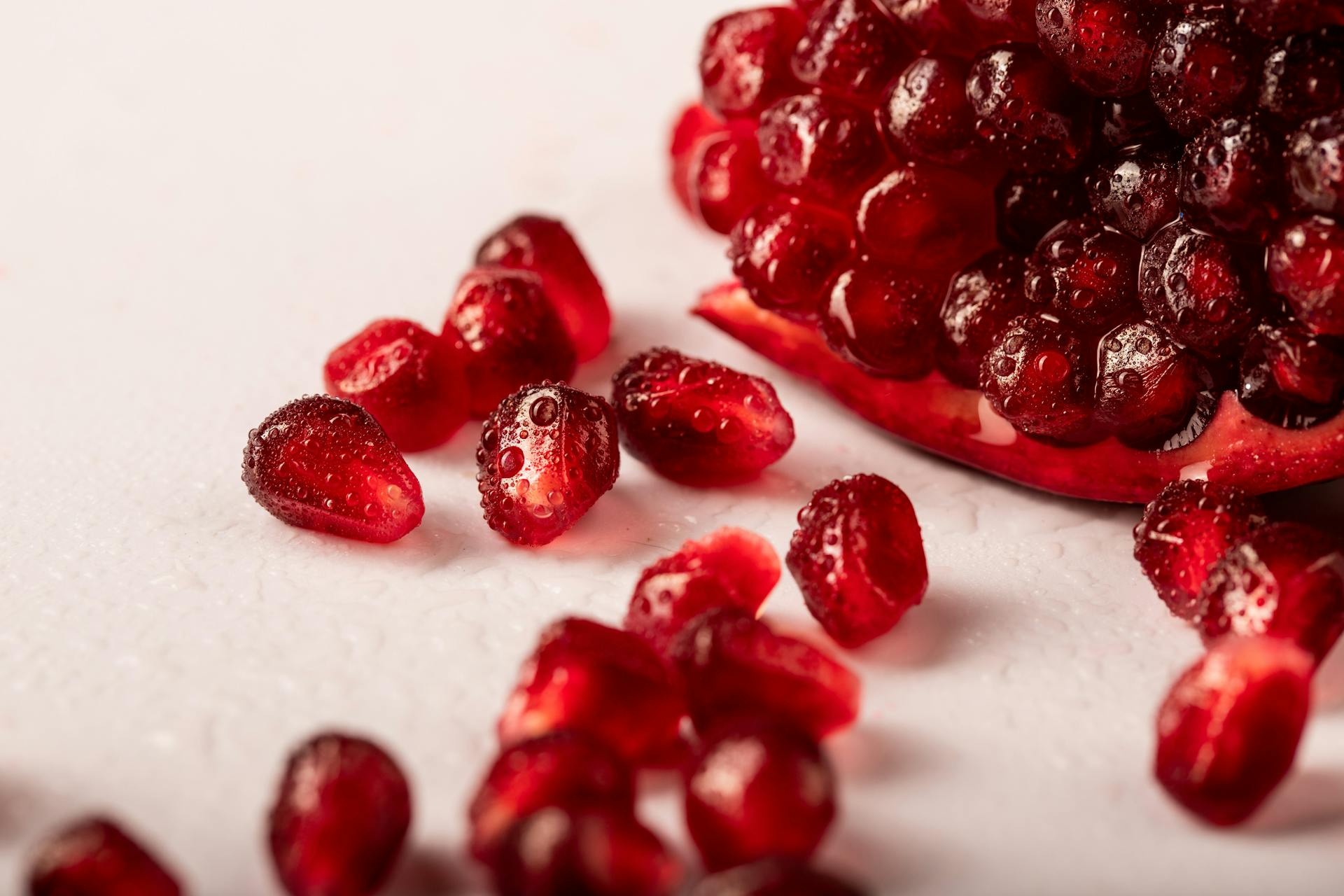Why Antioxidants Are Essential for a Healthy Lifestyle

Free radicals are unstable molecules that can wreak havoc on our bodies, damaging cells and contributing to various health issues. They are formed through natural processes like metabolism, as well as external factors such as pollution, cigarette smoke, and exposure to harmful chemicals. Antioxidants act as valiant defenders, neutralizing these free radicals and mitigating their detrimental effects.
These potent compounds come in various forms, including vitamins, minerals, and phytochemicals found abundantly in plant-based foods. They work in intricate ways, either by directly neutralizing free radicals or by supporting the body’s natural antioxidant defenses.
The role of antioxidants in the body
Antioxidants play a multifaceted role in maintaining your body’s delicate balance and overall well-being. Their primary function is to combat oxidative stress, a condition that arises when there is an imbalance between the production of free radicals and the body’s ability to neutralize them.
Oxidative stress has been linked to a wide range of health issues, including chronic inflammation, premature aging, and the development of various diseases. By neutralizing free radicals, antioxidants help protect your cells from damage, reducing the risk of these adverse effects.
Furthermore, antioxidants contribute to the proper functioning of your immune system, ensuring that your body can effectively defend itself against pathogens and foreign invaders. They also play a role in supporting cardiovascular health by preventing the oxidation of LDL (low-density lipoprotein) cholesterol, a major contributor to the formation of plaque in arteries.
Health benefits
The benefits of incorporating antioxidants into your lifestyle are numerous and far-reaching. Here are some of the most significant advantages:
- Reduced risk of chronic diseases: Studies have shown that a diet rich in antioxidants may lower the risk of developing chronic conditions such as heart disease, certain cancers, and neurodegenerative disorders like Alzheimer’s disease.
- Anti-aging properties: Antioxidants combat the effects of free radicals, which are believed to contribute to the aging process. By neutralizing these harmful molecules, antioxidants may help slow down the signs of aging and promote longevity.
- Improved cognitive function: Certain antioxidants, such as those found in berries and leafy greens, have been linked to better cognitive performance and a reduced risk of cognitive decline associated with aging.
- Enhanced immune function: Antioxidants support the immune system by protecting cells from oxidative damage and promoting the proper functioning of immune cells.
- Skin health: Antioxidants play a vital role in protecting the skin from environmental stressors like UV radiation and pollution, which can contribute to premature aging and skin damage.
Also read: What are Free Radicals and How Do They Affect Our Health?
Foods rich in antioxidants

Nature has generously provided us with an abundance of antioxidant-rich foods. By incorporating these into your diet, you can reap the numerous benefits they offer. Here are some excellent sources of antioxidants:
- Berries: Blueberries, raspberries, strawberries, and blackberries are packed with antioxidants like anthocyanins, which give them their vibrant colors.
- Leafy greens: Spinach, kale, and romaine lettuce are rich in antioxidants like lutein and zeaxanthin, which are particularly beneficial for eye health.
- Nuts and seeds: Almonds, walnuts, and chia seeds are excellent sources of antioxidants like vitamin E and polyphenols.
- Spices: Turmeric, cinnamon, and ginger are loaded with powerful antioxidants like curcumin and gingerol.
- Vegetables: Tomatoes, bell peppers, and broccoli are abundant in antioxidants like lycopene, vitamin C, and sulforaphane.
- Fruits: Oranges, grapefruits, and pomegranates are rich in antioxidants like vitamin C and polyphenols.
How to incorporate antioxidants into your diet
Adopting a diet rich in antioxidants is a simple yet effective way to promote overall health and well-being. Here are some tips to help you incorporate more antioxidants into your daily routine:
- Eat a rainbow of fruits and vegetables: Aim to include a variety of colorful produce in your meals, as different colors signify the presence of different antioxidants.
- Snack on nuts and seeds: Keep a stash of antioxidant-rich nuts and seeds like almonds, walnuts, and chia seeds on hand for a nutritious and satisfying snack.
- Incorporate spices and herbs: Experiment with adding antioxidant-rich spices like turmeric, cinnamon, and ginger to your dishes for an added flavor boost and a potent antioxidant punch.
- Opt for whole grains: Choose whole grains like quinoa, brown rice, and oats, which are rich in antioxidants and provide essential nutrients.
- Drink green tea: Green tea is a powerhouse of antioxidants, particularly a group called catechins, which have been linked to numerous health benefits.
Antioxidant supplements: Are they necessary?
While a balanced, antioxidant-rich diet is the ideal way to obtain these beneficial compounds, some individuals may consider taking antioxidant supplements. However, it’s crucial to approach supplements with caution and consult with a healthcare professional before incorporating them into your routine.
Supplements should never be viewed as a replacement for a nutritious diet but rather as a potential complement. It’s important to note that research on the effectiveness of antioxidant supplements in disease prevention has yielded mixed results, and excessive intake of certain antioxidants can potentially lead to adverse effects.
Also read: Hormonal Imbalance: Causes, Symptoms, and Effective Treatment
The link between antioxidants and disease prevention
Numerous studies have explored the potential role of antioxidants in preventing and managing various diseases. While the research is ongoing, some promising findings have emerged:
- Cardiovascular disease: Antioxidants like vitamin C, vitamin E, and polyphenols may help reduce the risk of heart disease by preventing the oxidation of LDL cholesterol and reducing inflammation.
- Cancer: Certain antioxidants, such as lycopene and resveratrol, have been associated with a reduced risk of certain types of cancer, potentially due to their ability to neutralize free radicals and prevent cellular damage.
- Neurodegenerative disorders: Antioxidants like vitamin E and flavonoids have been linked to a lower risk of neurodegenerative diseases like Alzheimer’s and Parkinson’s, possibly by protecting brain cells from oxidative stress.
- Diabetes: Some research suggests that antioxidants may help improve insulin sensitivity and reduce the risk of developing type 2 diabetes by mitigating oxidative stress and inflammation.
It’s important to note that while these findings are promising, more research is needed to fully understand the complex relationship between antioxidants and disease prevention.
Antioxidants and skin health
Antioxidants play a crucial role in maintaining the health and youthful appearance of your skin. Here’s how they contribute to skin care:
- Protection against UV damage: Exposure to UV radiation from the sun can generate free radicals that damage skin cells, leading to premature aging and an increased risk of skin cancer. Antioxidants like vitamin C and vitamin E help neutralize these free radicals and protect the skin from UV-induced damage.
- Anti-aging benefits: Antioxidants combat oxidative stress, which is a major contributor to the visible signs of aging, such as fine lines, wrinkles, and age spots. By neutralizing free radicals, antioxidants help maintain the skin’s elasticity and youthful appearance.
- Improved skin texture and tone: Antioxidants like vitamin C and polyphenols can help improve skin texture and tone by promoting collagen production and reducing inflammation.
To maximize the benefits of antioxidants for your skin, consider incorporating antioxidant-rich foods into your diet and using topical skincare products that contain antioxidants like vitamin C, vitamin E, and green tea extract.
Antioxidants and mental well-being
While the link between antioxidants and mental health is still being explored, emerging research suggests that these powerful compounds may play a role in supporting cognitive function and mental well-being. Here’s how antioxidants can contribute to a healthy mind:
- Neuroprotective effects: Antioxidants like flavonoids and carotenoids have been shown to have neuroprotective properties, potentially reducing the risk of neurodegenerative diseases like Alzheimer’s and Parkinson’s by combating oxidative stress in the brain.
- Improved cognitive function: Certain antioxidants, such as those found in berries and leafy greens, have been associated with better cognitive performance, memory, and focus.
- Mood regulation: Some studies suggest that antioxidants may help regulate mood by reducing inflammation and oxidative stress, both of which have been linked to mood disorders like depression and anxiety.
- Stress management: Antioxidants like vitamin C and vitamin E may help mitigate the effects of stress on the body by neutralizing free radicals and supporting the immune system.
While more research is needed to fully understand the relationship between antioxidants and mental health, incorporating antioxidant-rich foods into your diet may offer potential benefits for cognitive function and overall mental well-being.
Conclusion
Antioxidants are nature’s gift, equipping our bodies with the powerful tools needed to combat the relentless onslaught of free radicals and oxidative stress. By embracing a lifestyle rich in these remarkable compounds, you can unlock a world of potential benefits, from reducing the risk of chronic diseases to promoting longevity, enhancing cognitive function, and maintaining youthful skin.
Remember, the key to reaping the rewards of antioxidants lies in a balanced and diverse diet, filled with a vibrant array of fruits, vegetables, nuts, seeds, and spices. Embrace the rainbow of colors found in nature, and let each bite be a celebration of the antioxidant-rich bounty that Mother Earth has provided.
Embark on a journey towards optimal health and well-being by incorporating antioxidant-rich foods into your daily routine. Start by adding a few servings of colorful fruits and vegetables to your meals, and gradually explore new recipes that incorporate a variety of antioxidant-rich ingredients. Remember, small steps can lead to significant changes, and by prioritizing a diet rich in antioxidants, you’re investing in a lifetime of vibrant health.




